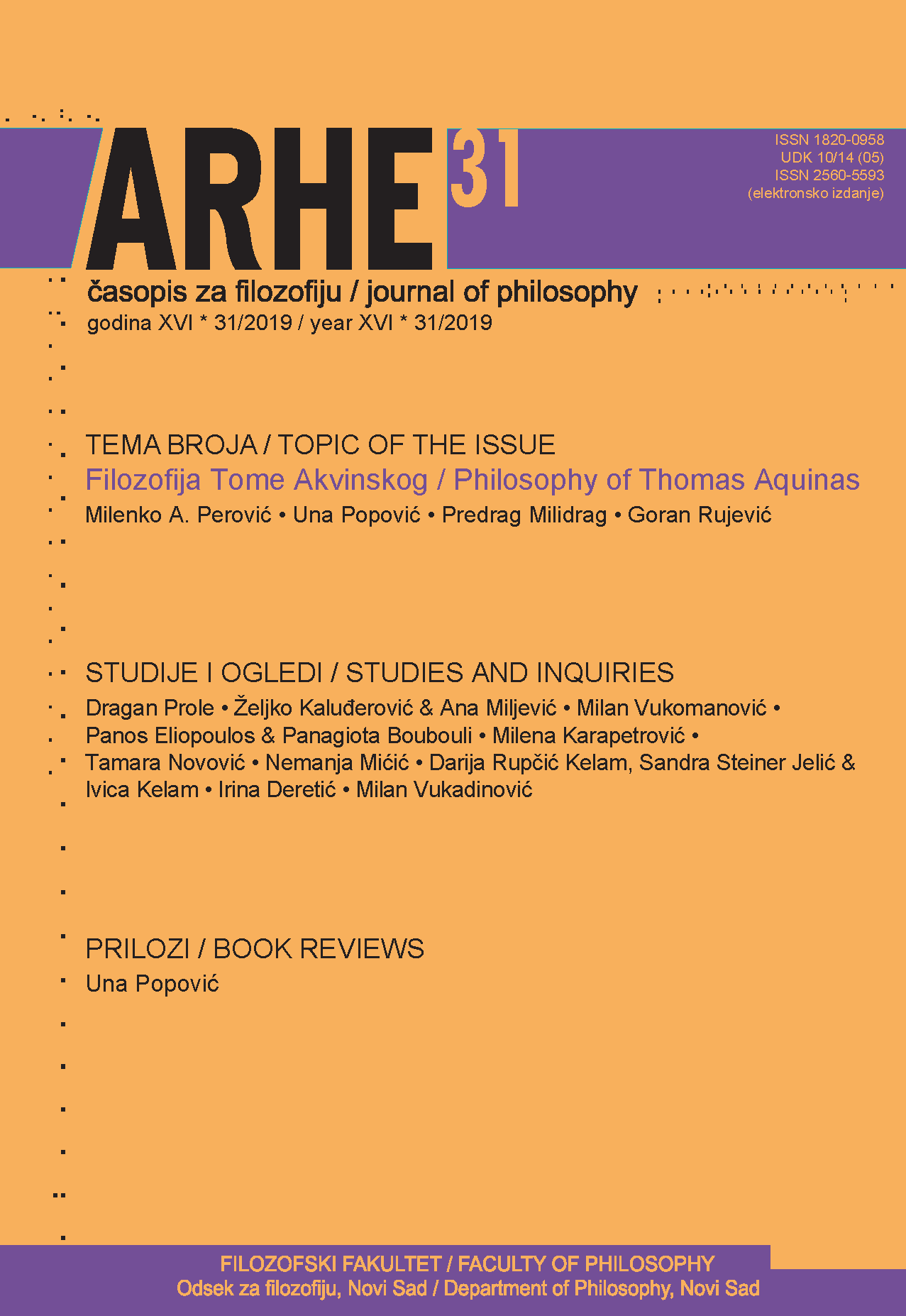Uteha filozofije: Šopenhauerova Indija
The Consolation of Philosophy: Schopenhauer's India
Author(s): Milan VukomanovićSubject(s): Metaphysics, Ethics / Practical Philosophy, 19th Century Philosophy, Indian Philosophy
Published by: Филозофски факултет, Универзитет у Новом Саду
Keywords: Arthur Schopenhauer; India; Hinduism; Buddhism; Vedanta; upanishads
Summary/Abstract: In this text the author has analyzed the possible Hindu (Vedantic) influences on the metaphysical and ethical teachings of Arthur Schopenhauer developed in his work The World as Will and Representation. Kant’s impact on Schopenhauer is well-known and often pointed out in the history of philosophy. It is clear, however, that Schopenhauer’s doctrine of will, as well as his conception of the world as representation, were largely prompted by Vedantic philosophy, as he himself indicated by his references to this literature. On the other hand, his ethical doctrine was influenced by early Buddhism, but this aspect has only partially been emphasized in this context. The author also assesses the possible sources of Schopenhauer’s knowledge about religions and philosophies of India in the framework of the development of Indology in early 19th century Europe.
Journal: Arhe
- Issue Year: 2019
- Issue No: 31
- Page Range: 133-149
- Page Count: 17
- Language: Serbian

